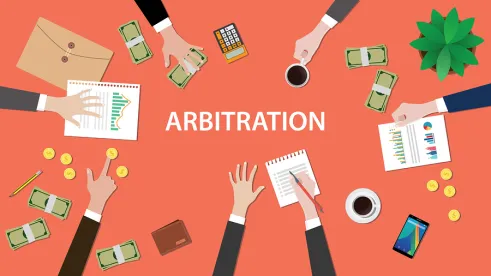One of the criticisms leveled at arbitration is the length of time it takes to select the arbitration panel and specifically the third arbitrator or umpire. Most arbitration clauses either specify an arbitral authority to assist the parties in selecting the arbitration panel or specify in the arbitration clause the method for selection and criteria for the arbitrators. In insurance and reinsurance contracts, arbitration clauses tend to require that the arbitrators be present or former officers of insurance or reinsurance companies or underwriters at Lloyd’s of London. Some arbitration clauses go further and require that the arbitrators be experienced with a particular type of insurance or business.
When the parties cannot agree on an umpire because they cannot agree on the qualifications of the candidates proposed, they are often relegated to the court to help them resolve the impasse. In a recent case, the court did just that and appointed an arbitrator consistent with the criteria mandated by the arbitration clause, but one who was opposed by a party because of the arbitrator’s affiliation with ARIAS•U.S.
In National Union Fire Ins. Co. of Pittsburgh, PA v. Beelman Truck Co., No. 17-CV-2946 (VEC), 2017 U.S. Dist. LEXIS 111136 (S.D.N.Y. Jul. 17, 2017), the insurance contract between the policyholder and the insurer had an arbitration clause that had two relevant provisions. First, it provided that if the two arbitrators fail to agree on a third party arbitrator within 30 days of their appointment, either party may make an application to a court of competent jurisdiction in New York. Second, the arbitration clause required that the arbitrators be executive officers or former executive officers of property or casualty insurance or reinsurance companies or insurance brokerage companies or risk management officials in an industry similar to that of the policyholder (in this case, trucking).
The parties reached an impasse on umpire selection and the court agreed to break the impasse under section 5 of the Federal Arbitration Act. Section 5 allows the court, upon application of one of the parties, to appoint an arbitrator or umpire following a lapse in the naming of the arbitrator or umpire. The impasse was caused, in part, because the policyholder objected to all of the carrier’s candidates because they were all certified ARIAS•U.S. arbitrators. The policyholder felt that affiliation with ARIAS•U.S. skews the candidates in favor of the insurance industry and makes them more likely to be partial to the carrier. On the other hand, the carrier rejected all of the policyholder’s candidates because none appeared to have any arbitration experience.
While the court agreed with the policyholder that ARIAS•U.S. certification was not required, nor was specific arbitration experience required, “[n]evertheless, reason dictates that the umpire, who, by virtue of being the neutral in the panel, needs to manage the arbitration ‘in an organized, efficient, and fair manner.'” Accordingly, the court appointed one of the insurer’s candidates, who, in the court’s view, was the most qualified to serve as umpire in this case (full disclosure, the chosen candidate was a former partner of mine at a prior firm).
Notably, the court stated that there was no evidence that ARIAS•U.S. certified arbitrators are partial to insurance companies because of their backgrounds. Also, the court suggested to policyholder that if alleged partiality was a real concern (rather than just delay), then the policyholder should have proposed candidates with arbitration experience that were not ARIAS•U.S. certified. “It is hard for the Court to believe that [the policyholder] could not have found someone at [the AAA, or JAMS] who has experience in trucking or insurance and has arbitration experience.”
ARIAS•U.S. is in the process of exploring with policyholder lawyers, brokers and others the expansion of ARIAS•U.S. to include arbitrators and members who are not from the insurance and reinsurance industries in an effort to continue to serve as a viable and fair source of arbitrators and umpires in insurance and reinsurance disputes, including disputes between policyholders, brokers and others and insurance or reinsurance companies. Contact ARIAS•U.S. for more information.




 />i
/>i

